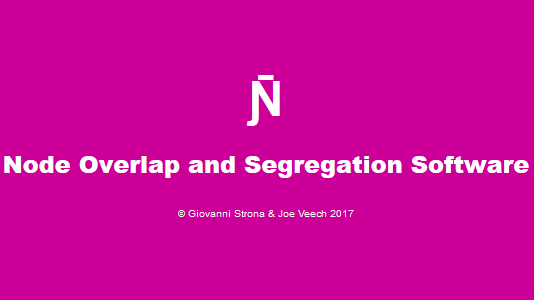
A new, free software suite for the analysis of ecological networks has been released. The suite, which is named ‘NOS’ (Node Overlap and Segregation Software) and whose features are described in detail in a recently published paper led by JRC scientist Giovanni Strona, includes a user-friendly online interface, a Python package, a standalone executable program, and an R package (available from CRAN at https://cran.r-project.org/web/packages/nos/index.html).
The suite makes it easier to assess if, and to what extent, the structure of an ecological network tends towards either node overlap or segregation, and modularity. That is, it helps quantify the tendency for two members of a network (such as two pollinators) to share interacting partners (e.g. plants), a pattern that has received much attention in recent studies, having being suggested as key to the stability and resilience of natural communities.
The core of the software revolves around the network index introduced by Strona and Veech in 2015. The many advanced (yet easy to use) software functionalities of NOS, such as the automatic identification of trophic levels in food webs, have the potential to improve scientists’ understanding of ecological network structures. In turn, considering that one of the main threats to biodiversity is how species loss may propagate through species interactions (e.g. from resources to consumers), this may provide fundamental insights into how natural systems will respond to global change.
Further information
- Strona, G., Matthews, T. J., Kortsch, S., & Veech, J. A. (2017) NOS: A software suite to compute node overlap and segregation () in ecological networks, Ecography, doi:10.1111/ecog.03447
- NOS – Node Overlap and Segregation Software
- New measure finds that specialisation could be the key to biodiversity
- Identifying realistic species interactions is key to understanding ecological networks
- Historically robust natural ecosystems could collapse due to climate change and human activity
Details
- Publication date
- 6 October 2017
